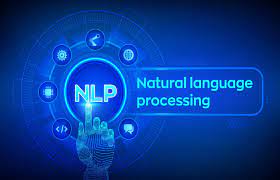Content
For instance, they know how to control their anger when the umpire unfairly calls their child out at a little league game. They know how to avoid distractions while working from home, so they can maintain focus and stay productive. They know what they need to do to achieve their fitness goals — and they follow through. If you’re unable to manage your emotions, you are probably not managing your stress either. This can lead to serious health problems. Uncontrolled stress raises blood pressure, suppresses the immune system, increases the risk of heart attacks and strokes, contributes to infertility, and speeds up the aging process.
It’s not as easy to understand that blowing up in a meeting may cost you the personal equity you need to push a project through six months from now. Working well with others is a process that begins with emotional awareness and your ability to recognize and understand what other people are experiencing. Once emotional awareness is in play, you can effectively develop additional social/emotional skills that will make your relationships more effective, fruitful, and fulfilling.
How to improve self-management skills
Self-management is even more important when we talk about empowering employees across the organization to be more innovative and resourceful. When every team member understands their responsibilities, goals, and what it takes to achieve them, they can make better decisions and do their part to achieve the team and organization objectives. Part of effective self-management with empowerment is that employees make good decisions about when to seek additional help or input.
- Self-management is an essential skill in our personal and professional lives that can be continuously refined and improved.
- Here are some ways you can sharpen your skills and improve how you self-manage.
- This in turn can leave you feeling lonely and isolated and further exacerbate any mental health problems.
- This piece is heavily dependant on self-awareness because you need to understand yourself and your triggers to be able to manage them well.
- With the ability to manage stress and stay emotionally present, you can learn to receive upsetting information without letting it override your thoughts and self-control.
- Self-awareness – You recognize your own emotions and how they affect your thoughts and behavior.
Building trust is vital for high performing teams so will you build trust with the team if you fly off the handle, make rash decisions or don’t turn up on time? These are all self-management issues that you can have a choice on.
Improving Emotional Intelligence (EQ)
As we know, it’s not the smartest people who are the most successful or the most fulfilled in life. You probably know people who are academically brilliant and yet are socially inept and unsuccessful at work or in their personal relationships. Intellectual ability or your intelligence quotient isn’t enough on its own to achieve success in life. Yes, your IQ can help you get into college, but it’s your EQ that will help you manage the stress and emotions when facing your final exams. IQ and EQ exist in tandem and are most effective when they build off one another.
When you identify your values and make choices that align with them, it’s easier to make decisions. Speak up for what you believe in and be willing to stand up for it.
Emotional Intelligence: Self-Management
If you begin to feel things like “this isn’t fair” or “why didn’t they meet the deadline? ” you are likely seeing yourself as a victim. A player works with intention rather than being controlled by external events. They can often find themselves engaged more productively by evoking a coaching stance, being creative to propose solutions, or respectfully challenging the status quo. Even those with strong self-management capabilities can falter now and then. Perhaps you didn’t get much sleep last night, and let your emotions get the better of you at a team meeting.
What are the 6 self management skills?
- Accountability. Accountability is about taking ownership.
- Stress management. Another skill is stress management.
- Time management. All of us have the same amount of time in a day.
- Organisational skills.
- Self-motivation.
- Adaptability.
Transparency also means that you openly admit to mistakes and that you confront unethical behaviour in others. Adaptability speaks to your comfort level with the inevitable ambiguities of organizational work and life. You can adjust to changes and be flexible in how you work with others. Optimism in the EQ sense means that you tend to see the best in others and in changing situations. Briefly, self-management skills refer to those abilities that allow us to pursue our goals with integrity and trustworthiness, as well as to be creative and adaptable. At a fundamental level, self-management means that you are able to exercise discipline in your habits as well as your reactions. Become aware of how effectively you use nonverbal communication.
Pillars of Energy Management – Pillar 3
After a few weeks you can expand this to more time, but the essence of the point is you have taken control in the mediation, and you can bring that exercising control in daily activities. Self-management involves using what you know about your emotions to manage them in such a way as to generate positive interactions with others and motivate yourself in all situations. People with strong self-management skills know what to do and how to act in different situations. The ability to consciously access our thoughts, desires, and feelings can help us control our behaviors. This, in turn, can have a direct impact on our performance, and how others perceive us. For example, as Ibrahim works through his plan, he begins to notice some anxious feelings within his body and finds himself ruminating at night. He begins to sense his “ego attachment” to the opportunity to succeed in the eyes of others and a sense of worry about whether he is the right person for this project.
What is another name for self management skills?
empowerment, self-reliance, self-rule, self-sufficiency, vitae, selfgovernment, self-sustainability.
If we have a good plan we know the critical items we have to get done. We also know that there will be many demands/requests for our time helping others meet their objectives. We need to stake out time on our calendars for our work first, while still allowing enough time to be supportive of others and to stay in tune with the organization. By doing this, you control which items of lesser priority get your time. Appropriate engagement varies from the executive table to individual contributors.









